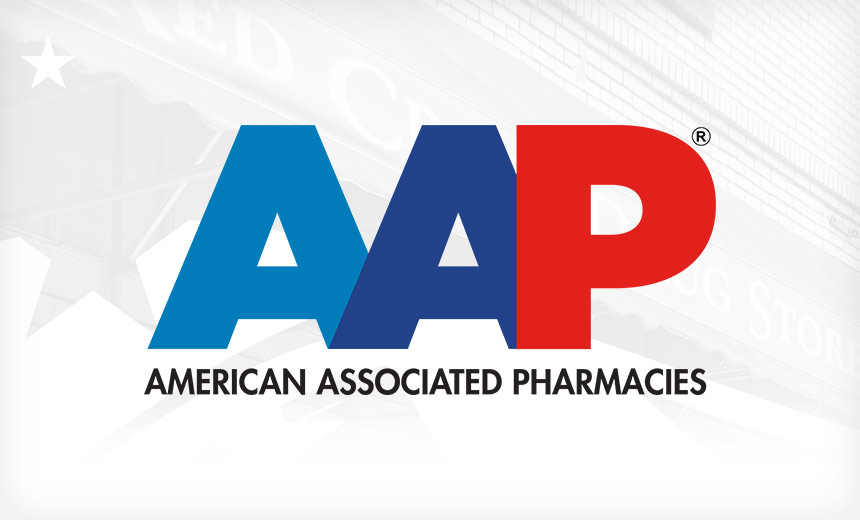Ransomware Group Embargo Threatens Release of 1.5TB of Pharmacy Data
In a bold move within the ever-evolving landscape of cybercrime, the ransomware group Embargo is threatening to publish nearly 1.5 terabytes of sensitive data allegedly stolen from the American Associated Pharmacies (AAP). This collaborative, which comprises 2,000 independent pharmacies, finds itself embroiled in a crisis that not only jeopardizes its operational integrity but also the confidentiality of customer information. Embargo claims that AAP has defaulted on a ransom agreement following a previous payment of $1.3 million, demanding an additional $1.3 million for the deletion of the pilfered data.
The Threatening Countdown
Embargo has set a countdown clock on its dark web site, indicating a looming deadline for AAP to meet the ransom demand or face the public release of the data. "It seems AAP does not care about their data. AAP has paid 1.3 million for decrypt and owe another 1.3 million for 1.469 TB of their data," stated the group in a recent blog post. The group contends that AAP’s perceived neglect regarding customer confidentiality has forced their hand.
The incident has raised eyebrows within the cybersecurity community, particularly as Mike Hamilton, former Chief Information Security Officer and current field CISO at Lumifi Cyber, suggested that strong public engagement in digital security is lacking. "Until we establish a federal privacy law that helps discourage disclosure risks, incidents like this will continue, risking class-action lawsuits against organizations," Hamilton elaborated.
Background of American Associated Pharmacies
Founded in 2009 through the merger of United Drugs of Phoenix, Arizona, and Associated Pharmacies of Scottsboro, Alabama, AAP represents one of the largest independent pharmacy organizations in the United States. While the organization has not officially confirmed the cyberattack on its site, a notice addresses operational disruptions, highlighting that "limited ordering capabilities for API Warehouse have been restored at APIRx.com." AAP has also announced that all user passwords for their sites have been reset, urging members to follow password recovery procedures.
Despite its operational notices, AAP has not publicly discussed the ransomware incident. An attorney representing AAP was unavailable for comments when contacted by Information Security Media Group.
The Broader Implications of Double Extortion
This incident is not an isolated one; Embargo has recently threatened another healthcare organization, Memorial Hospital and Manor in Georgia, with the release of a separate trove of data. On November 11, the gang announced its intent to leak 1.15 terabytes of data from the facility, further emphasizing a trend of double extortion wherein cybercriminals not only encrypt data but also threaten public exposure to force compliance with ransom demands.
Hamilton reiterated the challenges faced in the healthcare sector, noting the sophisticated tools that Embargo and similar groups employ to evade detection. "Embargo seems to have international and multi-sector victims and is not focusing on a specific victim profile. They seem opportunistic with a wide net of targets," he remarked.
The Signs of a Growing Threat
Embargo first emerged in the spring of 2024, characterizing itself as a politically neutral international team. According to Hamilton, there is no indication that their activities are supported by nation-states. However, the array of organizations impacted—including law enforcement, government, and healthcare entities—signals a potentially severe and ongoing threat to various sectors.
"Especially in the healthcare field, where sensitivity and confidentiality are paramount, this group poses a significant threat," said Hamilton. Given that Embargo is rumored to operate through affiliates, their infrastructure could be exploited by other actors in the cybercrime world.
Engaging the Community
The actions of the Embargo group place a spotlight on the need for robust cybersecurity practices and the possible implications of data leaks for affected organizations and their clientele. As cyber threats continue to escalate, discussions surrounding privacy laws, effective response strategies, and awareness could transform the current landscape.
Readers are invited to share their thoughts on the growing incidence of ransomware attacks, particularly in the healthcare space. What steps should organizations take to bolster their defenses against such threats? Join the conversation in the comments below and stay informed on this critical issue affecting the technology landscape.
For further insights into cybersecurity measures, we recommend exploring authoritative sources like Wired, TechCrunch, and The Verge for the latest developments in the field.
What steps can organizations take to prevent ransomware attacks like the one on AAP?
Hello! Today we have two guests to discuss the recent ransomware attack on American Associated Pharmacies (AAP) and the threat by the ransomware group Embargo to release sensitive data. Our first guest is Mike Hamilton, former Chief Information Security Officer and current field CISO at Lumifi Cyber. Thank you for joining us, Mike.
Mike Hamilton: Thank you for having me.
Our second guest is Sarah Johnson, an independent cybersecurity researcher at Greyhat Securities. Sarah, welcome to the show.
Sarah Johnson: Thanks for having me.
Host: To get started, can you both provide some background information on ransomware attacks and the growing trend of double extortion?
Mike Hamilton: Ransomware is a type of malware that encrypts an organization’s data and demands payment in exchange for the decryption key. In recent years, there’s been an increase in double extortion tactics where cybercriminals threaten to publish or sell stolen data if the ransom isn’t paid. It’s a way to increase pressure on victims and increase the chances of payment.
Sarah Johnson: Embargo’s actions are a reflection of the current environment where cybercriminals can operate with relative impunity. Healthcare organizations, because of the nature of their data, are particularly attractive targets, and the risk of data breach exposes them to significant financial and reputational harm. A sophisticated response is required to prevent these attacks and mitigate the risks.
Host: How does the Embargo ransomware gang operate, and are they unique in their tactics?
Mike Hamilton: Embargo seems to be opportunistic in their selection of targets and not aligned with any known nation-state actor. Their use of cryptocurrency and the dark web for extortion makes them similar to other ransomware groups. However, they have shown a willingness to target high-profile organizations and have announced publicly when they will release stolen data if ransom demands aren’t met.
Sarah Johnson: They’re relatively new, but they’re not the only ones employing double extortion tactics. What sets them apart is their brazenness and the level of damage they’re

